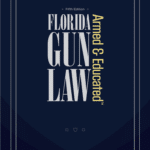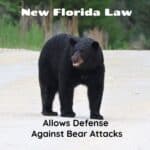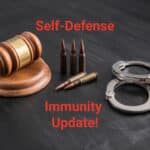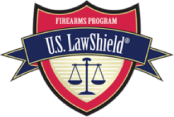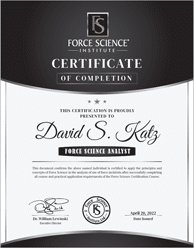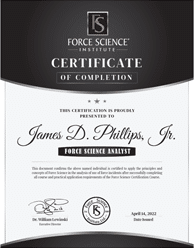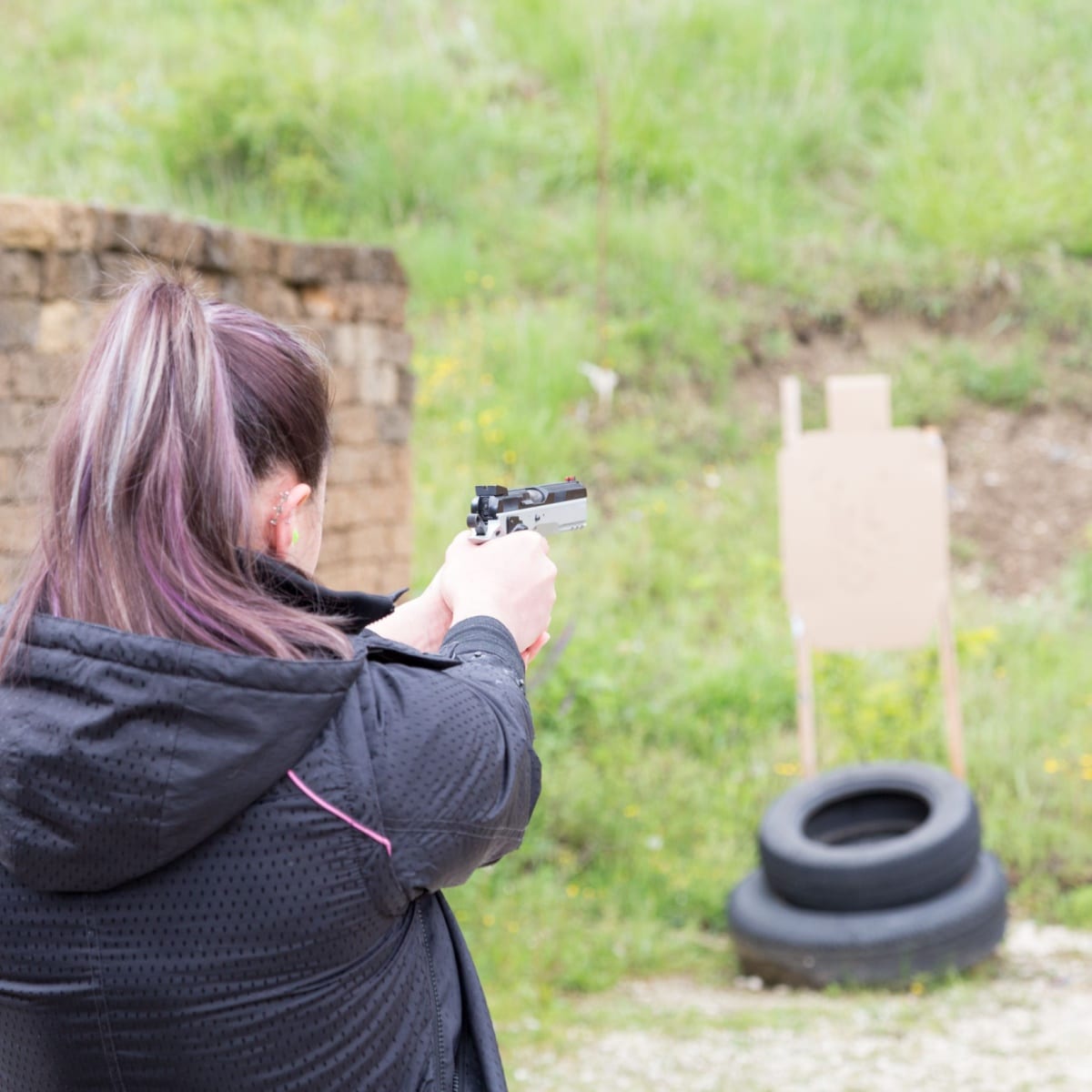
- May 17, 2024
- |
- Backyard Range,Client Stories
Firearm Defense Success Stories
Although we rarely write articles about our cases, this one is special. Thanks to the hard work of attorney Christine Vazquez and the entire team at the Firearm Firm, our clients can sleep at night with no criminal charges hanging over their heads. This case is worth talking about for 2 reasons. First, our clients DID NOT BREAK THE LAW, yet they had not one, but 3 different charges filed against them. Second, we had to win this case and make the charges go away three different times, because the State Attorney had a vocal victim who wanted to be reimbursed for the damage to their home and because the State Attorney apparently did not like that our clients were shooting on their own property and was out to find someway to punish these innocent people. We have never before had a case progress like this one did. The following true story shows why it is important to make sure your attorney knows the law and is an expert in the area that you hire them to represent you.
A LEGAL Backyard Shooting Range
Our clients are husband and wife who own a 5-acre lot. The lot was zoned for agricultural use and did not include a dwelling or a home. One day the pair set-up a berm for recreational shooting practice on their private property. (To learn more about backyard shooting ranges, click here!) The berm was situated near an adjacent 5-acre lot that was densely populated with trees and did not include a home or dwelling. The area is known for hunting, agricultural use, and target practice.
On the day of the incident, a neighbor whose home is located several properties away, and beyond the heavily wooded lot, found bullets in and damage to their home. The neighbor called law enforcement and an investigation began. Police officers questioned multiple people in the area and found two bullets. After learning that our clients were target shooting on their 5-acre lot, earlier that day, law enforcement closed their investigation even though other people were also shooting in the area.
Culpable Negligence charges were filed!
The State Attorney’s office immediately filed Culpable Negligence charges against both husband and wife. To prove culpable negligence the State must prove: (1) the Defendant exposed victims to personal injury; and (2) the Defendant did so through culpable negligence. See Fla. Std. Jury Instr. (Crim.) 8.9.
After our investigation which included collecting records, visiting the subject properties, questioning possible witnesses, communicating with law enforcement, and reviewing all of the State’s evidence, we realized that even if the bullets had come from our clients’ guns (which we do not believe they did), our clients still did not commit the crime of culpable negligence or any other crime.
Motion to Dismiss #1
In response to the charges being filed, our office filed a Motion to Dismiss and scheduled a hearing with the court. We realized that when reviewing the case, none of the neighbors were actually home during the time the shooting occurred and only arrived home to find bullets in their home. In order to prove culpable negligence, the State must prove that our clients exposed the alleged victims to personal injury. Courts have further determined that it is the, “likelihood of death or great bodily harm from the negligent act,” that justifies the imposition of a criminal sanction. Azima v. State, 480 So. 2d 184, 187 (Fla. Dist. Ct. App. 1985). In the case at hand, none of the alleged victims listed on the State’s Information were present or in harm’s way during the time the shooting occurred. Since none of the listed victim’s were home or anywhere in the area during the alleged shooting, no one was exposed to personal injury.
The day before the hearing on our Motion to Dismiss, the State must have realized we were right. The State filed a nolle prosequi, which is a formal notice of abandonment of the charges.
Discharging a Firearm In Public – 790.15(1) Fla Stat.!
That same day, the State tried again by filing a different charge. This time, the offense was Discharging a Firearm in Public under Florida Statute 790.15(1), based on the same facts. To prove the offense of discharging a firearm in public under 790.15(1), the State must prove:
- Defendant knowingly discharged a firearm in a public place;
- Defendant knowingly discharged a firearm over the right of way of a paved public road, highway, or street;
- Defendant knowingly discharged a firearm over an occupied premises; or
- Defendant recklessly or negligently discharged a firearm outdoors on property used primarily as the site of a dwelling or zoned exclusively for residential use.
See Fla. Std. Jury Instr. (Crim.) 10.6.
Motion to Dismiss #2
We again filed a Motion to Dismiss as our clients private property is enclosed by a fence and is not open to the public. The property is wooded and does not include a business, right-of-way or through-street. A public place is any place intended or designed to be frequented or resorted to by the public. See Fla. Std. Jury Instr. (Crim.) 10.6 and C.C. v. State, 701 So. 2d 423, 424 (Fla. Dist. Ct. App. 1997). Therefore, the undisputed facts do not support a prima facie case for Element 1.
There is no evidence to indicate that a shot was fired over a road, highway, or street. The only road that leads to the Defendant’s private property is a private dirt road which is not paved, nor a public road. Further, the road does not run through the aforementioned properties. Therefore, the undisputed facts do not support a prima facie case for Element 2.
None of the properties were occupied at the time the shots were fired. Therefore, the undisputed facts do not support a prima facie case for Element 3.
Our clients discharged a firearm into a berm that was placed in an empty fenced-in wooded lot owned by them. The lot where the berm is located is adjacent to a 5-acre heavily wooded vacant lot that does not include a dwelling. Discharging a firearm toward an uninhabited wooded lot from a non-public empty lot is neither reckless nor negligent. Further, Defendant’s empty lot was not zoned exclusively for residential use, but is in fact zoned for agricultural use. Hence, the State cannot support a prima facie case for Element 4.
Once again we prepared for a hearing. On the day of the hearing, the State filed another nolle prosequi in open court when the hearing was supposed to begin.
Discharging a Firearm In Public – 790.15(4) Fla Stat.!
In open court the State made its third attempt at a criminal charge. This time, the State attempted to charge our clients under Discharging a Firearm in Public under subsection 5 of Florida Statute 790.15. However, the State failed to notice, subsection 5 of the law no longer exists. The Judge pointed this out to the State and the State tried again. Finally, the State filed a criminal charge for Discharging a Firearm in Public under 790.15(4). The judge was not happy that the State had once again dropped the charges and filed new charges. Of course, since this is an area of law that we focus on, Ms. Vazquez immediately knew she would be filing a Motion to Dismiss and let the Judge know that. The Judge inquired as to the ground for the new Motion to Dismiss and Ms. Vazquez let the Judge know that even under the new charge, the State would not be able to show all the elements of the charges. The Judge actually set the hearing for the Motion to Dismiss in open Court right then and there. The hearing was to be held in less than a week, even though Ms. Vazquez had not yet returned to the office and written or filed the Motion to Dismiss.
As quickly as possible, our office filed a third Motion to Dismiss. For the State to prevail on a prima facie case for Discharging a Firearm in Public under Florida Statute 790.15(4), the State is required to prove:
- Defendant recreationally discharged a firearm outdoors;
- Defendant discharged a firearm in an area that the Defendant knew or reasonably should have known is primarily residential in nature; and
- The area has a residential density of one or more dwelling units per acre.
Motion to Dismiss #3
As we previously discussed, the area in not primarily residential in nature and is zoned agricultural. Further, even though the residential density is far less than 1 unit for every 5 acres, that is the maximum that the area is zoned for. In fact in a 180 acre area with the subject property at the center, there are in actuality fewer than 30 residential dwellings.
Ms. Vazquez again appeared in court after filing the Motion to Dismiss. The State filed no traverse (an answer to a Motion to Dismiss) and made no argument to save their case, again realizing that we were correct about the law. After a very quick hearing on our Motion to Dismiss, the Judge granted the Motion dismissing the case. However, even after a judge dismisses a case, the State can refile new charges, unless the case is dismissed with prejudice. Before leaving the court room, Ms. Vazquez ensured that the Judge used the magic words and entered the dismissal with prejudice. The case is now fully and finally resolved.
Never before did we have to win the same case 3 times for a client. We are happy to be able to deliver these results for our clients. This case really demonstrates the importance of having an attorney on your side who focuses on the area of law that your case involves. A general criminal practitioner would likely not have known the law well enough to know to file not only one, but 3 Motions to Dismiss. Great work as always Christine and the team.
Get in touch

"*" indicates required fields
Copyright © 2022-2025 The Firearm Firm All rights reserved.

